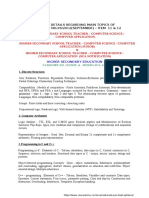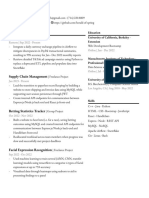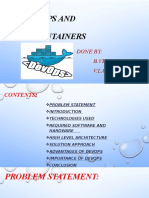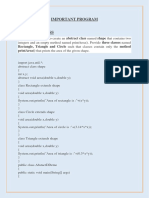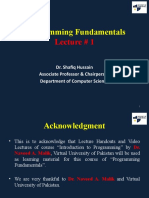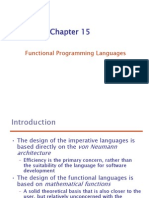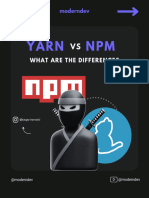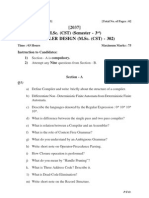0% found this document useful (0 votes)
62 views3 pagesComputer Science Notes
The document provides an overview of fundamental topics in computer science, including algorithms, programming languages, software engineering, operating systems, networking, databases, theory of computation, and artificial intelligence. It outlines key concepts, methodologies, and emerging technologies such as cloud computing and blockchain. Additionally, it suggests resources for further study, including books and online courses.
Uploaded by
caylobe2Copyright
© © All Rights Reserved
We take content rights seriously. If you suspect this is your content, claim it here.
Available Formats
Download as DOCX, PDF, TXT or read online on Scribd
0% found this document useful (0 votes)
62 views3 pagesComputer Science Notes
The document provides an overview of fundamental topics in computer science, including algorithms, programming languages, software engineering, operating systems, networking, databases, theory of computation, and artificial intelligence. It outlines key concepts, methodologies, and emerging technologies such as cloud computing and blockchain. Additionally, it suggests resources for further study, including books and online courses.
Uploaded by
caylobe2Copyright
© © All Rights Reserved
We take content rights seriously. If you suspect this is your content, claim it here.
Available Formats
Download as DOCX, PDF, TXT or read online on Scribd
/ 3


















































